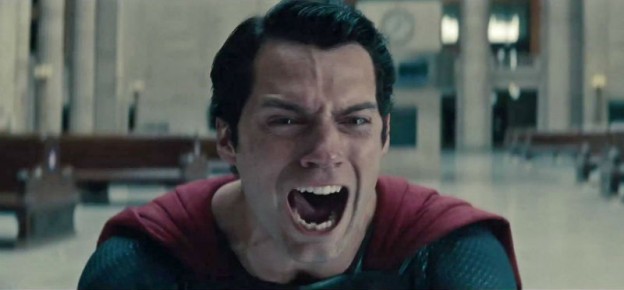Now that the autumn leaves have officially fallen, it’s the perfect time to reflect on this summer’s movie season. This year’s crop of blockbuster releases (or wanna-be blockbusters – looking at you, The Lone Ranger) feels like a mixed bag of quality. Some films proved themselves worthy of the hype (This Is the End, Star Trek Into Darkness) while others were more lackluster affairs that failed to match the significant pre-release buzz (World War Z, Elysium). Still, few films managed to capture the essence of what made summer films so popular to begin with.
The birth of the crowd-pleasing, popcorn-munching summer film arguably took place in May 1977 with a little film called Star Wars (though a case could be made for Jaws, which predates it by two years). George Lucas’ space opera took audiences by surprise, transporting them to a world they’ve never seen and providing what still stands as one of the most unabashedly fun films of all time. The Avengers unquestionably owned that title last year, and while Man of Steel may perhaps be my personal favorite Hollywood blockbuster of the season, no film released in summer 2013 embodies that sense of escapist entertainment as well as Guillermo del Toro’s Pacific Rim. Here’s why.
“Fresh” Vision of the Future
Since day one, del Toro made it clear that Pacific Rim is his loving tribute to the Japanese giant monster films of his youth, most famously the Godzilla franchise. The director even named his giant monsters “Kaiju” after the Japanese term which refers to these creatures and the sub-genre they inhabit. However, in addition to major metropolitan areas getting torn apart by ferocious space creatures, del Toro’s film integrates concepts like the shared-consciousness operation of the robotic Jaegers mankind has built to defend itself against the Kaiju. The mind-melding aspect of the story and the emotional trust behind the characters of Raleigh Becket (Charlie Hunnam) and Mako Mori (Rinko Kikuchi) may not be the most original story elements to aficionados of anime and Japanese culture, but to the world of Hollywood blockbusters, it’s a breath of fresh air. By blending the old-school concept of giant monster movies with lesser-known ideas, Pacific Rim plays like a more thrilling, higher-budgeted Mighty Morphin Power Rangers (in the best possible way).
Cancelling the Apocalypse
The most successful of summer blockbusters feature a group of heroes uniting in a common goal, usually due to the shared doom that they’ll face unless they band together. Films like the Harry Potter series, Armageddon and Jurassic Park all feature a motley selection of characters who find themselves drawn together by a common purpose. Pacific Rim is no different. An ensemble cast of international characters must launch one final strike against the inter-dimensional creatures threatening to usurp humanity’s dominant status as reigning species on the planet. The relationship between Raleigh and Mako largely serves as the film’s microcosmic reflection of this theme (until the third act gets into gear, at least), and Idris Elba’s Stacker Pentecost even gets to deliver an Independence Day-style motivational speech to really build up the stakes of the climax. According to the movies, there’s no bonding experience quite like the apocalypse.
Dark But Not Dour
Despite the looming prospect of the end of the world, Pacific Rim never lets itself wallow in despair or grief. The tragic consequences of the Kaiju invasion are established early on in the film and young Mako’s run-in with the terrifying behemoths are key scenes for conveying the character’s internal struggles as well as just how close the human race is to extinction. Yet, del Toro wisely avoids focusing on the tragedies of the war and infuses the film with enough humor, suspense and over-the-top action to allow audiences to revel in the epic battles without drawing any kind of post-9/11 parallels. The film isn’t aiming to make a social statement about war and the devastating aftermath. Its goal is simple: to transport viewers to another world and allow them to forget the complicated one they live in, if only for a couple of hours of jaw-dropping spectacle. If that’s not the goal of a summer blockbuster, what is?
Do you agree with my selection of Pacific Rim as THE event film of summer 2013? If not, which film would you have selected? Sound off in the comments below.





I didn’t see any of these, but I do think the article was well-written and informative. Good angle for opinion and editorial.